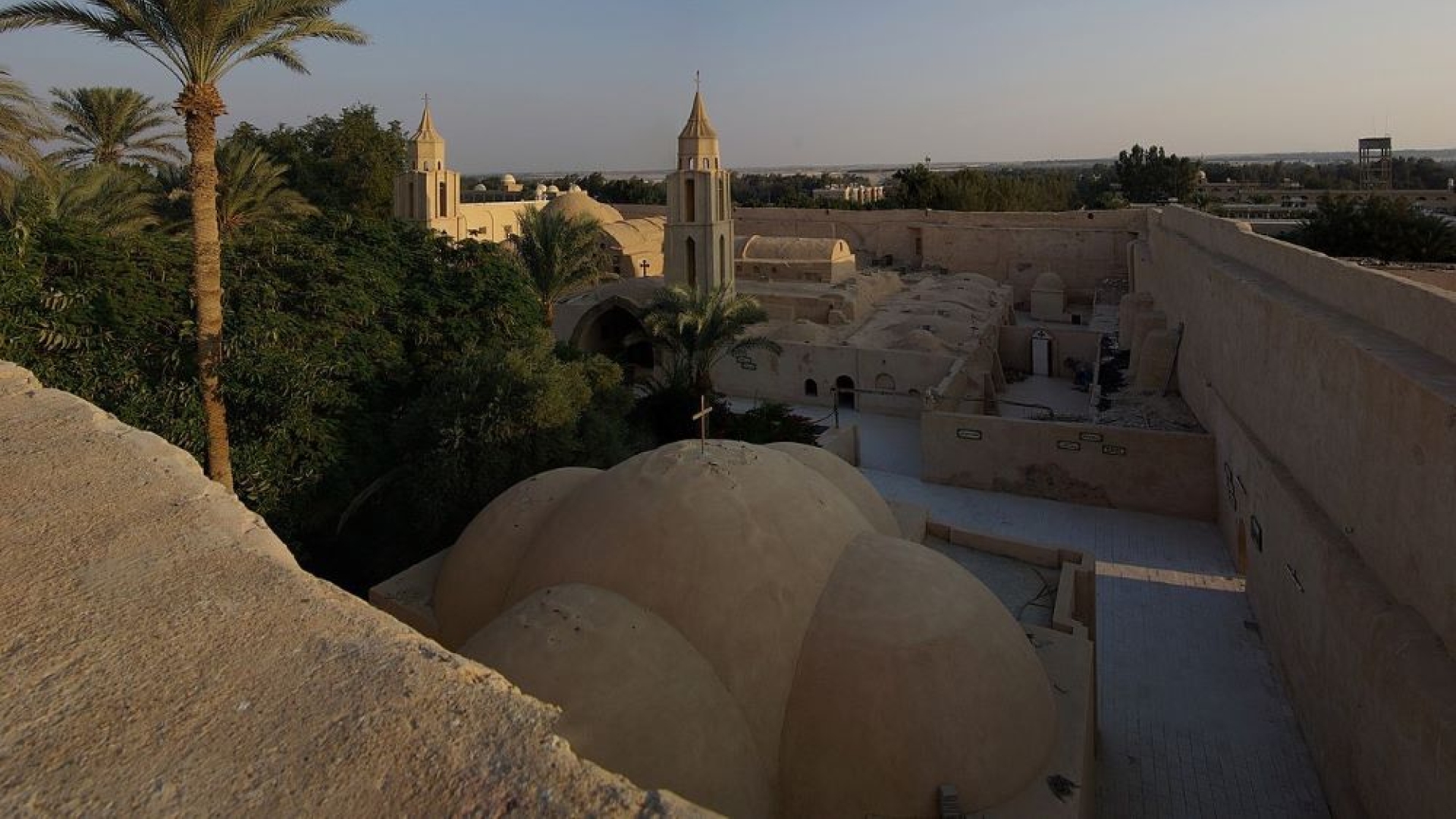The Coptic Orthodox Church Suspends Dialogue with Rome

Monastery of St. Bishoy
The Holy Synod of the Coptic Orthodox Church held its plenary session last week at the Monastery of St. Bishoy in Wadi Natrun, located 70 km from Cairo (Egypt), under the presidency of Tawadros II, "Pope of Alexandria" and Patriarch of the Coptic Orthodox Church.
110 of 133 members were present. The Holy Synod commissions met in the Coptic cathedral of Abbasiya--a district of Cairo--to discuss the recommendations which were presented to members of the Synod during the plenary session for approval.
A Condemnation of Homosexuality
The Coptic Church made its views known on the question of "homosexuality" in a statement published by the Holy Synod. The text highlights that "According to the Bible, God created man to be distinct and unique. The scripture says, 'Then God said, "Let Us make man in Our image, according to Our likeness"' (Gen. 1:26). This means that God intended, from the very beginning, for man to reflect His holiness, righteousness, and freedom; 'So God created man in His own image; in the image of God He created him; male and female He created them. [...]' (Gen. 1:27,28)"
In this way, "God created humans, both male and female, in a state of holiness, and united them in the sacred covenant of marriage because God Himself is Holy; 'therefore a man shall leave his father and mother and be joined to his wife, and they shall become one flesh' (Gen. 2:24)."
The statement also recalls the teaching of St. Paul: "'[...] the men, leaving the natural use of the woman, burned in their lust for one another, men with men committing what is shameful, and receiving in themselves the penalty of their error which was due. [...] God gave them over to a debased mind, to do those things which are not fitting' (Rom. 1:26-28)."
"Accordingly," the text concludes, "the Coptic Orthodox Church strongly opposes all forms of sexual activity outside the bounds of marriage, which it sees as sexual distortion. It firmly rejects the notion that different cultural contexts can be used to justify same-sex relationships under the pretext of human freedom, as it believes this to be damaging to humanity."
Decisions and Recommendations
The Holy Synod made a number of decisions and recommendations. One recommendation draws attention: "The Coptic Orthodox Church affirms its firm position of rejecting all forms of homosexual relationships, because they violate the Holy Bible and the law by which God created man male and female, and it considers that any blessing, whatever its type, for such relationships is a blessing for sin, and this is unacceptable."
Likewise a decision establishes that "After consultation with the sister churches of the Eastern Orthodox family, it was decided to suspend the theological dialogue with the Catholic Church, re-evaluate the results that the dialogue has achieved since its beginning twenty years ago, and establish new standards and mechanisms for the dialogue to proceed."
In context, it is quite evident that the Declaration Fiducia supplicans was not unrelated to this decision.
Related Article:
The Consequences for Ecumenism
In January, Cardinal Kurt Koch, Prefect of the Dicastery for Promoting Christian Unity, stated in an interview that he "received negative reactions from the ecumenical world on the subject of Fiducia supplicans."
Metropolitan Hilarion (Alfeyev), former Chairman of the Department of External Relations of the Moscow Patriarchate, had declared at the end of December that it was no longer possible to talk of reunification between the two churches. At the end of February, the Russian Orthodox confirmed their rejection of the Declaration.
(Sources : Orthodoxy Cognate Page/InfoCatolica – FSSPX.Actualités)
Illustration : Berthold Werner, CC BY-SA 3.0, via Wikimedia Commons





